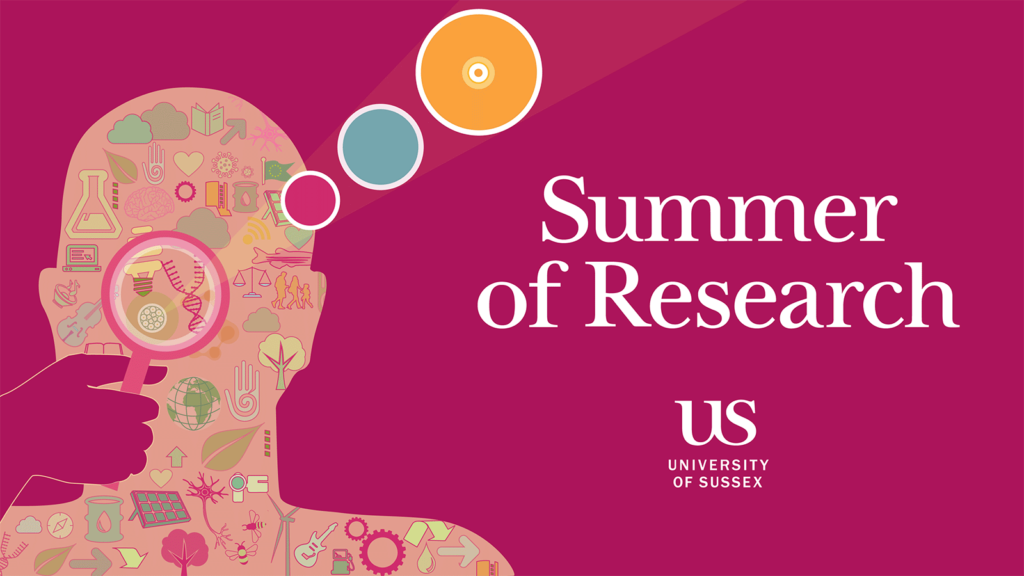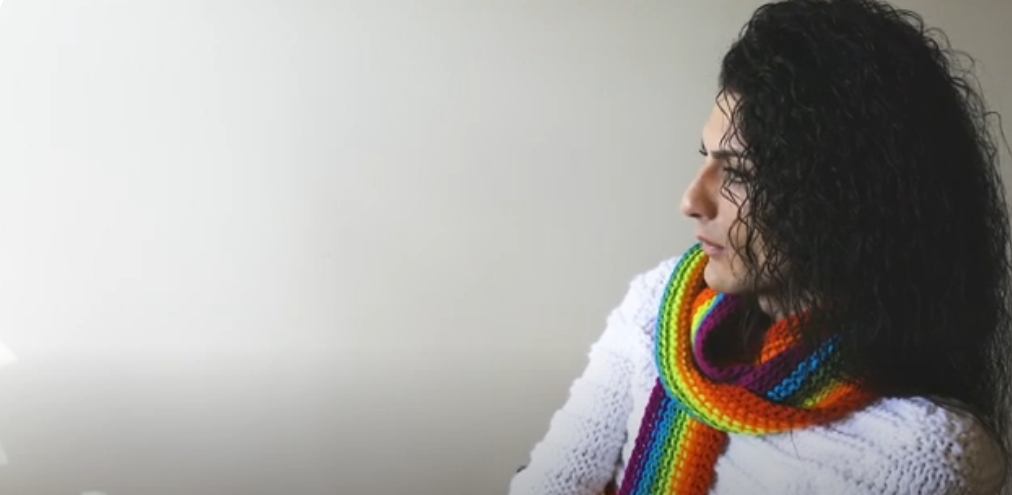Sarah Scuzzarello (SCMR, Geography); Nuno Ferreira (SCMR, Law); and Moira Dustin (SCMR, Law)
In academia, the rollercoaster of research (and other) administration often takes precedence over considerations about dialogue between researchers, participants and stakeholders and conversations with colleagues across disciplines. We were asked by the University of Sussex to host a hybrid event for the 2024 Summer of Research, and we decided to take the opportunity to organise an event that showcased groundbreaking research done at the University in the fields of gender, sexuality and migration. We also took the opportunity to facilitate a platform for dialogue about the importance, the difficulties, and the challenges of participatory methods in understanding these complex social, political and legal issues. This event, which took place on June 13th, 2024, was a confluence of minds – academics, local stakeholders, postgraduate students and researchers, and other interested participants – all gathered to engage in a dialogue that transcends traditional research boundaries.

The event commenced with opening remarks from David Ruebain, Pro Vice Chancellor of Culture, Equality, and Inclusion at the University of Sussex. His words set the tone for the day – one of inclusivity, engagement, and a shared commitment to enriching the academic discourse with diverse perspectives.
The first roundtable was a dialogue between fields of research that often intersect yet remain distinct. The discussion revolved around three focal points: conceptual (gender, sexual orientation, trans* identities), empirical (asylum seekers and “voluntary” migrants), and institutional (migration governance and social work). The speakers, including Moira Dustin (LPS), Nuno Ferreira (LPS), Sarah Scuzzarello (GS), Rachel Larkin (ESW), and Leila Zadeh (Rainbow Migration), delved into the blurred boundaries of migrant categories, the application of intersectional analysis, and the significance of social spaces in shaping the experiences of research participants. Importantly, speakers emphasised the need for knowledge co-production in the field to move away from “extractivist” approaches in research, while also being mindful of what “participatory research” means and its limitations. There was a clear agreement that we ought to be clear about who should be involved in co-producing knowledge – charities or research participants – and that different types of knowledge are “co-produced” depending on how collaboration is structured. Equally important is the recognition of the potential goal- and timing misalignment between academia, third sector, and funding bodies that can make knowledge co-production difficult. Those involved in a project will have different roles and capabilities, and we need to acknowledge the existence of diverse priorities and of different rhythms in our respective institutions, be those higher education, research institutes, or charitable organizations. An open dialogue and a call to identify the most appropriate stages in a research project to involve other non-academic actors seems one possible pathway towards meaningful knowledge co-production.
Lunch: A Feast for Thought and Collaboration The lunch was more than just a culinary break, offered by local caterer Jessie Kwong at Vegan Peace Food. It was a feast of thought and collaboration. As attendees mingled and exchanged ideas, they were offered a preview of Mehran Rezaei Toroghi’s new documentary film with queer Iranian refugees and migrants living in Turkey, the UK, and Canada (part of the NQIfFM – Negotiating Queer Identities following Forced Migration project), and a small selection of the collages that were part of the Queer(ing) Home and Belonging exhibition, illustrating the use of participatory visual methods in the speakers’ respective research projects.

During the second roundtable we looked at participatory research methods, focussing on the value and challenges of participatory research in gender and LGBTQI+ migration studies. This session brought together academics and research participants to discuss the benefits of participatory and arts-based methods. The conversation, with Manjot Kaur Dhaliwal (LPS), Mehran Rezaei-Toroghi (LPS), Magadaline Moyo (Right to Remain campaign organiser), Pierre Monnerville (photographer), and Oner Ozdamar (Head of Department, secondary school), highlighted the need for a shift in research approaches to make them more meaningful to participants and stakeholders. The academic panellists talked about the benefits of art-based methods as a “way in” to build trust and establish a more open channel of communication between researchers and the research participants. The process is messy however, and requires a high degree of flexibility that the rigid parameters of academia do not always account for. On the side of the participants, they all emphasised that taking part in the research project had both a public and a personal function. Publicly, they were driven by a desire to seek change in how migrants are perceived in the UK and how asylum seekers, and especially those seeking protection on the basis of sexual orientation and gender identity, are “stripped of their dignity by the Home Office”, as one participant said. To make their experiences visible and public, participants hoped to help others who are emigrating in navigating similar challenges to the ones they once faced. On a personal level, they talked about the importance of finding a respectful space where they could be themselves and reflect on their journey on their own terms – something they seldom have had the time to do.
A Step Towards Meaningful Research
The hybrid event at the University of Sussex was a testament to the evolving landscape of academic research. It underscored the necessity of bridging the gap between theoretical research and the lived experiences of individuals. By incorporating participatory visual methods, the event not only enriched the academic dialogue but also paved the way for more inclusive and impactful research practices.


Leave a Reply